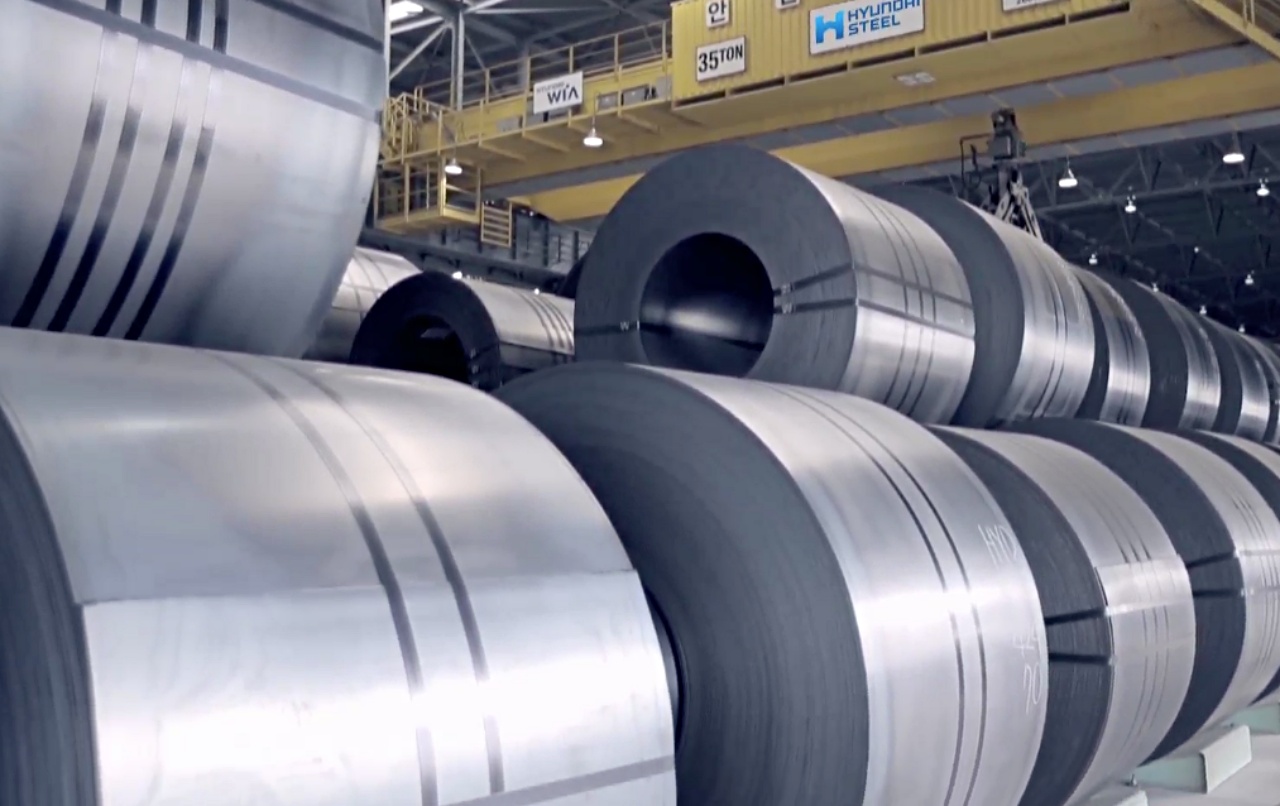Hyundai Steel said last week it would unload its unit in China called the Hyundai Steel Beijing Process. The company said it made the decision due to slow sales in recent years in addition to the diminished market share of Hyundai Group’s auto manufacturing firms - Hyundai Motor and Kia Motors in China.
As per The Korea Herald, while Hyundai Steel is getting rid of its steel processing subsidiary, it will continue operating its Tianjin unit to keep its business in China going. It was said that the total assets owned by the South Korean steelmaker’s Beijing unit are estimated to be about KRW464.8 billion or $355 million.
Based on its regulatory filing, Hyundai Steel stated its total real estate assets are worth about KRW382.3 billion won. A company official said that the size of the deal is not yet on paper because the due diligence process for the acquisition has yet to start.
"Hyundai Steel has completed signing a memorandum of understanding with a potential buyer for the Beijing plant,” an official of Hyundai Steel said. “The company will soon engage in pre-acquisition due diligence and finish selling its Beijing unit during the first half."
It was in 2002 when Hyundai Steel Beijing Process was built on a site close to production plants owned by Hyundai Motor and Kia. The facility supplied various steel products to the said vehicle factories.
Until 2016, the Beijing unit has been posting an annual operating profit between KRW10 billion and KRW20 billion. However, when China and South Korea’s economic relationship soured due to the latter’s deployment of the US THAAD anti-missile system, the company’s performance started to decline, and sales of Hyundai Motor and Kia cars also dropped in the process.
The carmaker’s share in the Chinese car market went down from 3.59% to 3.43% percent in 2019, and this continued to plummet until it reached 1.21% last year. Kia’s record fell from 1.68% in 2018 to 0.43% in 2022.
The Korea Times stated that the rapid losses also resulted in the decline of sales for the Hyundai Steel Beijing Process. It posted a net loss of KRW49.6 billion in 2021. Meanwhile, the poor performance of the steel firms was partly blamed on China's boosted capability to make its own steel materials and sell them at a lower price.



 Dow Hits 50,000 as U.S. Stocks Stage Strong Rebound Amid AI Volatility
Dow Hits 50,000 as U.S. Stocks Stage Strong Rebound Amid AI Volatility  China Extends Gold Buying Streak as Reserves Surge Despite Volatile Prices
China Extends Gold Buying Streak as Reserves Surge Despite Volatile Prices  Japanese Pharmaceutical Stocks Slide as TrumpRx.gov Launch Sparks Market Concerns
Japanese Pharmaceutical Stocks Slide as TrumpRx.gov Launch Sparks Market Concerns  Japan Economy Poised for Q4 2025 Growth as Investment and Consumption Hold Firm
Japan Economy Poised for Q4 2025 Growth as Investment and Consumption Hold Firm  Hims & Hers Halts Compounded Semaglutide Pill After FDA Warning
Hims & Hers Halts Compounded Semaglutide Pill After FDA Warning  Trump Backs Nexstar–Tegna Merger Amid Shifting U.S. Media Landscape
Trump Backs Nexstar–Tegna Merger Amid Shifting U.S. Media Landscape  Global Markets Slide as AI, Crypto, and Precious Metals Face Heightened Volatility
Global Markets Slide as AI, Crypto, and Precious Metals Face Heightened Volatility  Asian Markets Surge as Japan Election, Fed Rate Cut Bets, and Tech Rally Lift Global Sentiment
Asian Markets Surge as Japan Election, Fed Rate Cut Bets, and Tech Rally Lift Global Sentiment  Kroger Set to Name Former Walmart Executive Greg Foran as Next CEO
Kroger Set to Name Former Walmart Executive Greg Foran as Next CEO  Nikkei 225 Hits Record High Above 56,000 After Japan Election Boosts Market Confidence
Nikkei 225 Hits Record High Above 56,000 After Japan Election Boosts Market Confidence  UK Starting Salaries See Strongest Growth in 18 Months as Hiring Sentiment Improves
UK Starting Salaries See Strongest Growth in 18 Months as Hiring Sentiment Improves  South Africa Eyes ECB Repo Lines as Inflation Eases and Rate Cuts Loom
South Africa Eyes ECB Repo Lines as Inflation Eases and Rate Cuts Loom  Prudential Financial Reports Higher Q4 Profit on Strong Underwriting and Investment Gains
Prudential Financial Reports Higher Q4 Profit on Strong Underwriting and Investment Gains  Uber Ordered to Pay $8.5 Million in Bellwether Sexual Assault Lawsuit
Uber Ordered to Pay $8.5 Million in Bellwether Sexual Assault Lawsuit  Missouri Judge Dismisses Lawsuit Challenging Starbucks’ Diversity and Inclusion Policies
Missouri Judge Dismisses Lawsuit Challenging Starbucks’ Diversity and Inclusion Policies  Washington Post Publisher Will Lewis Steps Down After Layoffs
Washington Post Publisher Will Lewis Steps Down After Layoffs  Bank of Japan Signals Readiness for Near-Term Rate Hike as Inflation Nears Target
Bank of Japan Signals Readiness for Near-Term Rate Hike as Inflation Nears Target 































